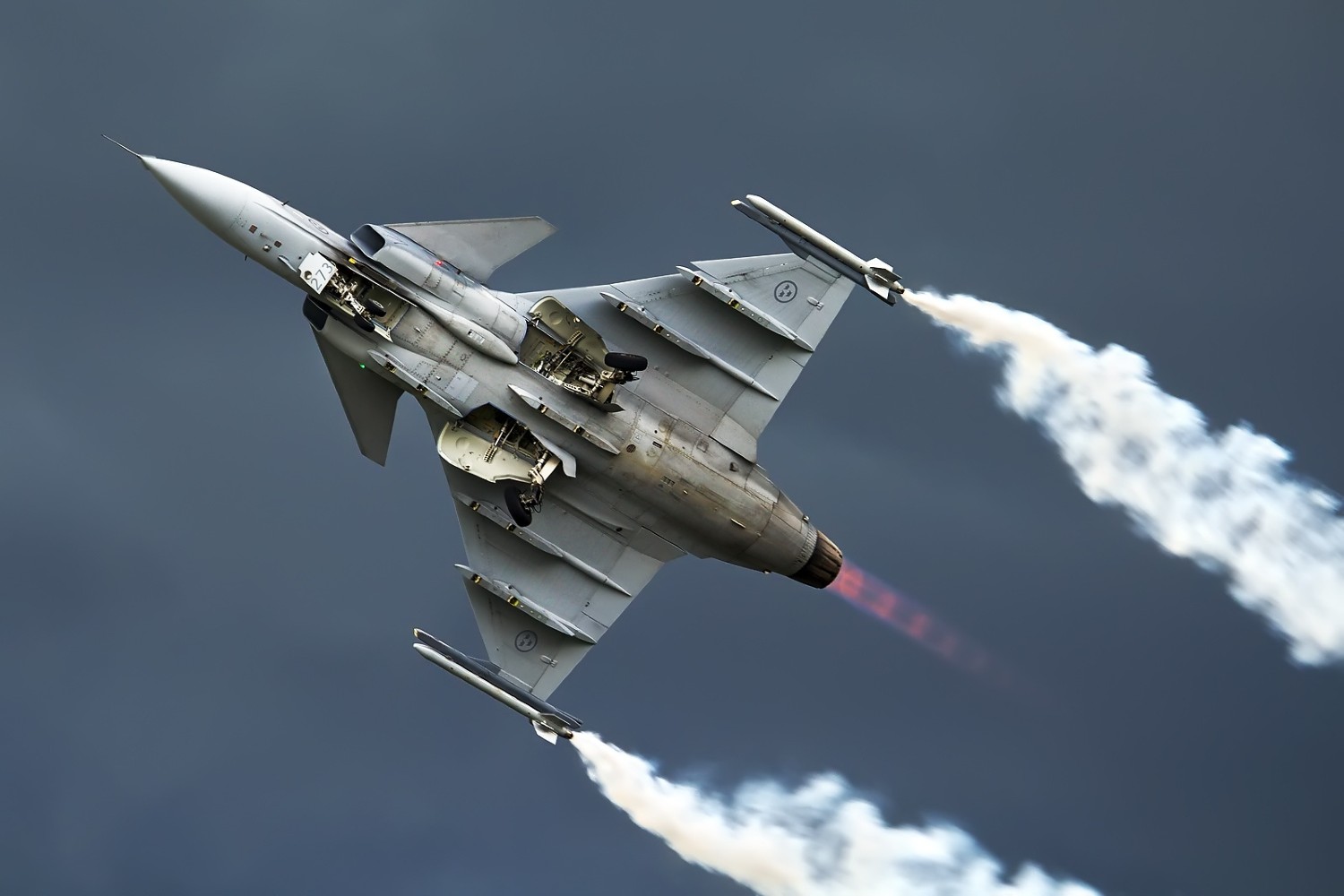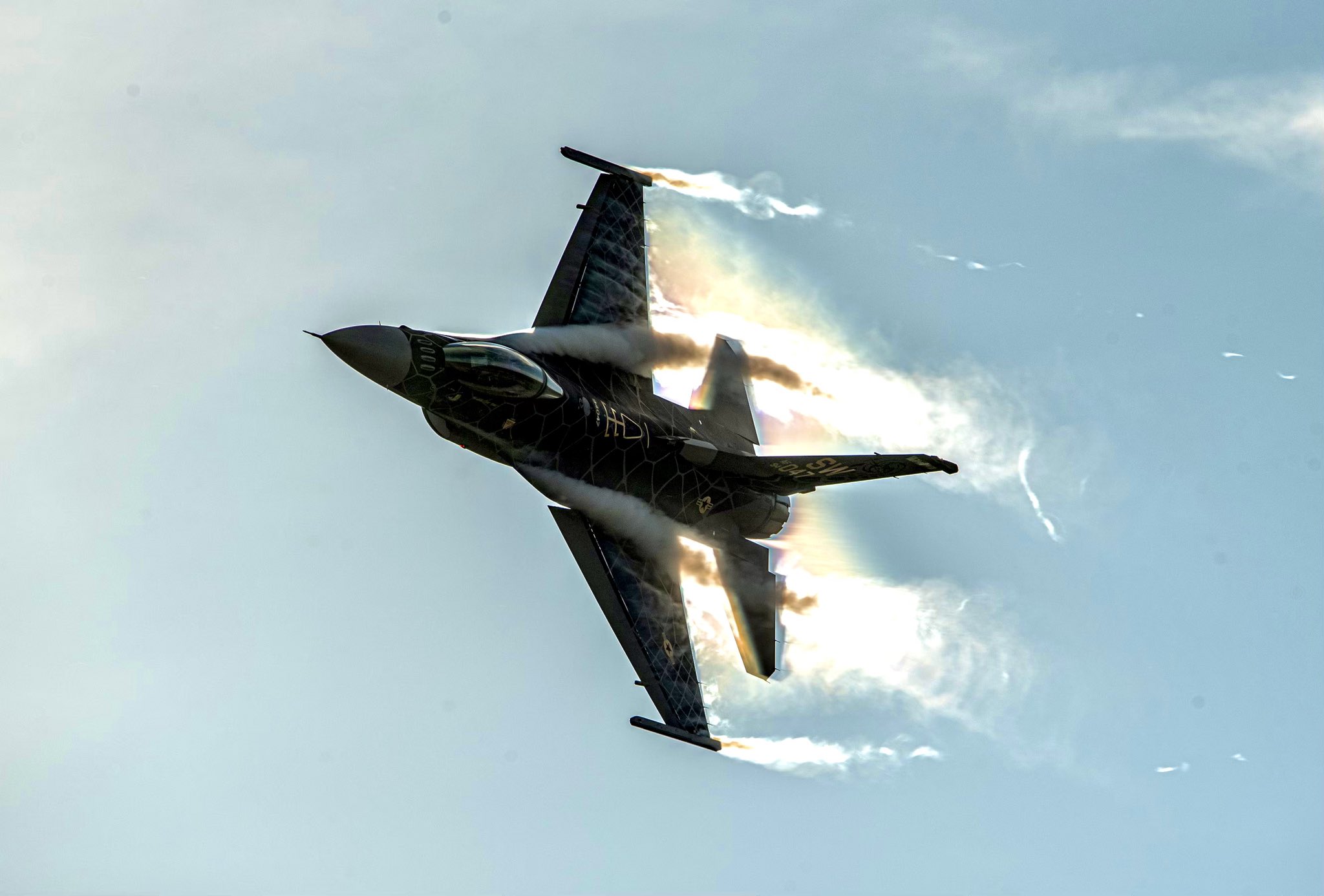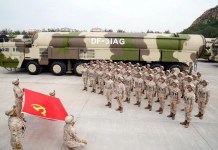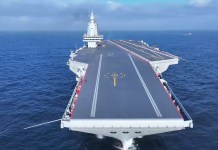Putting all speculations to rest, the Royal Thai Air Force has chosen the SAAB Gripen-E aircraft to replace its aging fleet of F-16A/B, providing a big boost to the Swedish firm.
The RTAF announced the acquisition in a Facebook post on August 27. The service said it wants to acquire Gripen-E/F built by Sweden’s SAAB. The decision was reached after careful consideration and evaluation conducted over ten months.
The RTAF concluded that the Gripen-E/F fighter jet has a capability range that meets the Air Force’s principled and strategic needs. The aircraft can be developed further, leading to increased multi-dimensional operation capability. The text was machine-translated.
The RTAF has been evaluating the two fighters—the Swedish Saab Gripen-E and the Lockheed Martin F-16 Block 70/72 Vipers—that were offered to it. Both jets are fourth-generation aircraft believed to be well-suited for small air forces that do not require expensive stealth jets like the F-35 Lightning II.
The manufacturers of both jets presented their final proposals, which contained an offset strategy as mandated by the Thai government, said the RTAF commander ACM Panpakdee Pattanakul in an announcement on August 26.
Bangkok Post reported that the commander said that two panels had been established to review the offers one last time to guarantee that the Air Force selects the aircraft that best aligns with its requirements.
กองทัพอากาศประกาศเลือก Gripen E/F เป็นผู้ชนะอย่างเป็นทางการ (สักที) เผยปฏิบัติการร่วมได้หลายมิติ มี Offset หลายด้าน
RTAF announced the selection of Gripen E/F as a winner over the F-16V in its fighter competition. pic.twitter.com/9uLWR5MvC2
— thaiarmedforce (@ThaiArmedForce) August 27, 2024
He noted that the Air Force has been evaluating the findings of both panels and was supposed to make a final judgment by the end of the week. However, on August 27, RTAF commander ACM Panpakdee said the panel chose the Gripen E/F over the F-16 Block 70/72 jets.
Earlier, in July 2024, an RTAF spokesperson told Janes that the RTAF favored the Swedish fighter after conducting a thorough evaluation that demonstrated the Gripen better met its needs. “The procurement is in process [but is] dependent on the government,” the spokesperson said. However, the final decision was left to the Thai government.
At that time, the spokesperson said that the program would move ahead only after receiving budgetary permissions and assessments from the Thai administration. However, neither Saab nor the Thai government commented on the reports. A contract will likely be signed soon.
A source recently told the Bangkok Post that the Swedish jet manufacturer was providing the Air Force with access to its tactical data connection as part of its offset policy. The RTAF has already devised a strategy to advance the development of its version of the technology, known as Link T.

The source further stated that Sweden was willing to improve the Air Force’s 340 AEW air security surveillance radar system at no cost, pointing out that this would typically cost roughly five billion baht. EurAsian Times could not independently corroborate these claims.
Saab has been actively highlighting the Gripen’s history in Southeast Asia to attract the Thai government. With the final announcement approaching, the Air Force remains hopeful that the incoming cabinet (the line-up of the new cabinet is expected to be drawn up by the end of the week) will approve their selection.
When the Thai government officially signs the contract for the Gripen-E fighter jet, Swedish company Saab will finally emerge from the shadow of US military powerhouse Lockheed Martin. This would mark Saab’s first contract in almost ten years.
More significantly, after winning multiple fighter jet contracts in the previous few years—often at the expense of the SAAB Gripen—it will be a rare instance of Lockheed experiencing a loss. Lockheed has obtained the majority of contracts for F-35 stealth fighters, while numerous countries are considering the F-16 Viper Block 70/72 as they seek to upgrade their fleets.
F-16 Block 70 Bites The Dust
Saab has been trying, albeit unsuccessfully, to find possible buyers for its front-line fighters, so an agreement with Thailand might breathe fresh life into the Gripen-E aircraft. The last triumph for the Gripen fighter occurred in 2014 when Brazil entered a US$5.4 billion deal for 36 Swedish-made fighters.
The E-Series represents a continuation of the lineage that began with the original Gripen-A single-seat and Gripen-B two-seat variants. However, the single-seat E-model has a few noteworthy upgrades and differences despite having an external appearance comparable to its predecessor.
Saab describes the Gripen-E as “Designed to defeat any adversary. Made for forward-thinking air forces, Gripen E incorporates cutting-edge technologies, the latest systems, sensors, weapons, and pods to ensure combat advantage, delivering air superiority in highly contested environments. Silent networking and total sensor fusion across a tactical air unit to blind and confuse the enemy. One aircraft is active, the others go passive.”
Saab claims that the Gripen-E will change the dynamics of combat by providing the advantage of launching the first missile and achieving the initial kill. According to Saab, their design is revolutionary because it enables them to quickly incorporate new hardware and update software to meet changing mission requirements.
The fighter jet features ten hardpoints, or weapon stations on the airframe that carry weapons, ordnance, and support equipment like targeting pods, drop tanks, flares, and countermeasures. It also has more noticeable air intakes and an upgraded General Electric F414-GE-39E engine. One notable aspect of the Gripen-E is its avionics architecture.
The Gripen-E doesn’t incorporate stealth design characteristics. Saab argues that this decision was made because of the speed at which hardware and software technologies are developing, which it predicts will increase the radar detection of stealth aircraft.
Since reconfiguring or changing an airframe is costly and challenging, Saab has opted to rely on quickly advancing technology rather than stealth to gain an advantage in combat and remain competitive. This approach places a lot of emphasis on advanced electronic warfare capabilities. These features may have appealed to the RTAF, which assessed the Gripen-E to be a better match than the F-16 Viper.
However, that does not make the Lockheed Martin F-16 Block 70/72 aircraft any less attractive.
The more recent Block 70/72 F-16 has expanded upon the capabilities of the F-16, which is well-known for its combat effectiveness across a variety of battlefields. The updated F-16 Block 70/72, often known as the F-16V, is a version of the popular F-16 multirole fighter.
This Lockheed Martin variant maintains the versatility and efficiency of the original while integrating contemporary features and technology innovations.
Even while it’s still classified as a fourth-generation fighter, the modified F-16V’s improved avionics suite gives it several cutting-edge features. The Northrop Grumman AN/APG-83 Scalable Agile Beam Radar (SABR), which has an active electronically scanned array (AESA), is the centerpiece of this system.
This state-of-the-art radar system enhances detection and engagement ranges, improves target-spotting capabilities for low-signature objects such as cruise missiles, and enhances resistance to electronic countermeasures.

In addition to the APG 83 radar, these F-16s come with a fully operational Legion IRST (infrared search and track system) targeting pod. The Legion pod follows and detects targets using infrared rather than radar signals, similar to the F-35’s sensors. This can be quite advantageous because the jet doesn’t emit any energy due to the “passive” nature of the technology.
An airplane emits a lot of energy when it uses its radar equipment, which enemies can detect. By steering clear of that threat, IRST sensors allow the host aircraft to remain concealed for an extended period.
According to Lockheed Martin, the F-16 is expected to last 1.5 times longer than earlier models—12,000 more hours—so it should continue to be in use well into the 2060s.
Apart from its increased robustness and endurance, the Block 70/72 is distinguished by its fuselage-mounted conformal fuel tanks. These tanks boost fuel capacity and range, which creates a difficult balance because more fuel typically translates into more drag.
However, despite its state-of-the-art features, the Gripen emerged as a more suitable option for Thailand, which already operates a fleet of F-16s and Gripens. The Saab Gripen-E received the backing of the United Kingdom in the Thai contest, which might have helped its case, in addition to the other parameters that resulted in its triumph.
Following the loss of multiple contracts to Lockheed Martin over the past few years, the Gripen is poised for a comeback, and the latest version of the F-16 faces a setback.
- Contact the author at sakshi.tiwari9555 (at) gmail.com
- Follow EurAsian Times on Google News




